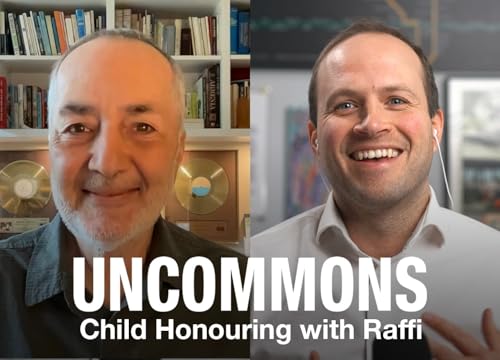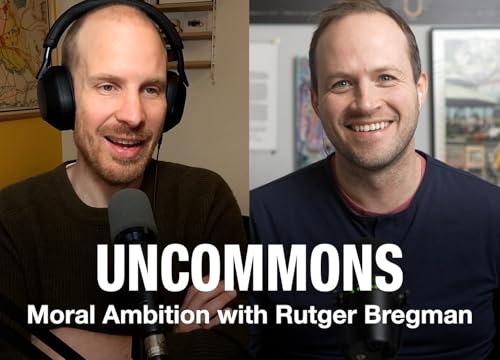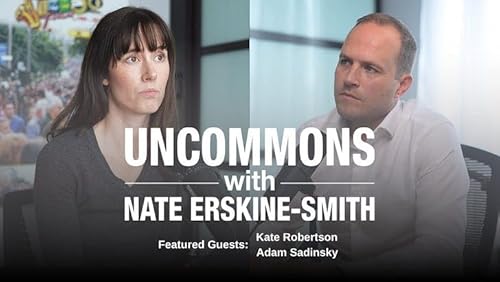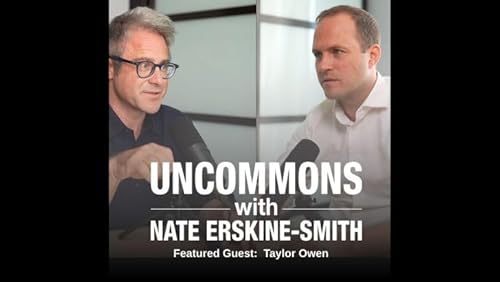Phil Demers joins me outside the gates of Marineland for this episode- a return to a conversation we began seven years ago at the Fox Theatre.Back then, we were fighting to pass Bill S-203 to end whale captivity in Canada. The law passed in 2019.Now, the fight is to save the remaining 30 beluga whales and 500 other animals who remain trapped inside as the park has ceased to exist. At one point, recently, Marineland even threatened to euthanize the whales if governments didn’t provide emergency financial support.Phil “The Walrus Whisperer” Demers was a trainer at Marineland turned whistleblower. He spent over a decade fighting Marineland in court after leaving his job there in 2012. After 13 years of legal battles and public advocacy, Marineland is finally on its last legs. But the fight to save the remaining animals isn’t over.We discussed what happens next, short-term and long-term solutions, and why governments should lead on this instead of playing only a reactive role.Chapters:0:00 Standing Outside Marineland6:21 Why China Might Actually Be Better10:04 The Sanctuary Myth & Rescue Reality14:08 30 Dead Whales18:13 500 Forgotten Animals19:30 13 Years of Legal Hell24:37 Conclusion: The Divorce AnalogyRead further:The Walrus and the Whistleblower - Documentary (CBC Gem) https://www.cbc.ca/documentarychannel/docs/the-walrus-and-the-whistleblower7 years ago with Phil: Transcript: [00:00:00] Nate Erskine-Smith: All right, well, welcome to Uncommons. It’s an interesting episode because I’m joined by Phil Demers, who actually joined me at the Fox Theater many years ago, four years ago before we started the podcast actually. And it was just a, a local town hall event. We showed Blackfish. Right. And you were there to talk about your experience as a whistleblower at this horrible place behind us.[00:00:19] Uh, it is interesting how far we’ve come, but also that the issue is so acute still. Uh, at the time we were talking about a bill that had to be passed. To end this kind of production and make sure we were protecting institutions in captivity. And you were adamant we had to get this bill passed. Hmm. Well we got the bill passed.[00:00:37] Yeah. And yet we’ve got marineland, uh, beside us now, and it was grandfathered through in a way. And now we’ve got 30 beluga whales. We’ve got 500 other animals that are, that are in here. Mm-hmm. And all of which, all, all of whom need to be saved in, in, in one way or another. And, uh, it didn’t [00:01:00] have to come to this, really did it.[00:01:02] Phil Demers: Well, we’ve, what, what has glossed over in much of, of your story is we’ve got a unwilling marine land in all of that. Yes. To evolve in any way, shape or form to be a, financially viable, uh, you know, for the security of their own future. Uh, but b, to adhere to any of the laws that we essentially passed, both provincially and, uh, and federally, although we did ban the breeding of the whales. Yep. Had we not banned the breeding of the whales. So, so currently there’s 30 belugas remaining. There’s four dolphins. Uh, we got two sea lions and a, and a host of, uh, land animals there. Had we not banned the breeding of belugas in 2019?[00:01:41] Nate Erskine-Smith: Yep.[00:01:42] Phil Demers: And albeit, the pregnant belugas of 2019 were grandfathered in.[00:01:47] So there were some whale birth births there. On average, Marineland had five to seven belugas born per year. A couple would die. But there’s, you know, it’s conceivable to say that whereas [00:02:00] we have 30 right now in there, we would have had an excess of 50. Right. They would’ve kept probably 60.[00:02:05] Nate Erskine-Smith: Yes, of course they would’ve kept the business model broke down with that law.[00:02:08] But if they would’ve kept going otherwise, I mean, they’re, they were the bad actors. It’s the, it just wants to keep it active [00:02:12] Phil Demers: At this point. It’s the only, it’s the only part of the law that they’ve, ad they’ve adhered to outside of importing, of course, which, which, uh, we ban. So it’s, it’s beyond their control, but.[00:02:21] Um, you know, the breeding, they, they stopped, but had they not, we’d be talking about 50 to 60 whales in those tanks. It, it was, uh, you know, that’s something to really hang our hat on. That was a huge, uh, and super progressive, uh, lawsuit. But it does interestingly, take us to this place now where marine land is, you know, we essentially bankrupt.[00:02:39] I, but we should stress owns a lot of land sitting on 700 acres of prime land meant to fuel or feed the, uh, the whole family trust. That’s, those are the heirs to it. You know, the operation is essentially sucking the money out of that. And so they’re looking for the, be it most lucrative or least expensive [00:03:00] way to get outta this thing.[00:03:01] The sale to China was to be a profitable one. Uh, should be stressed that here in North America, none of ...
Más
Menos
 Dec 15 20251 h y 4 m
Dec 15 20251 h y 4 m Dec 10 202533 m
Dec 10 202533 m Dec 3 202558 m
Dec 3 202558 m Nov 27 202547 m
Nov 27 202547 m 27 m
27 m 1 h y 7 m
1 h y 7 m 53 m
53 m 39 m
39 m
